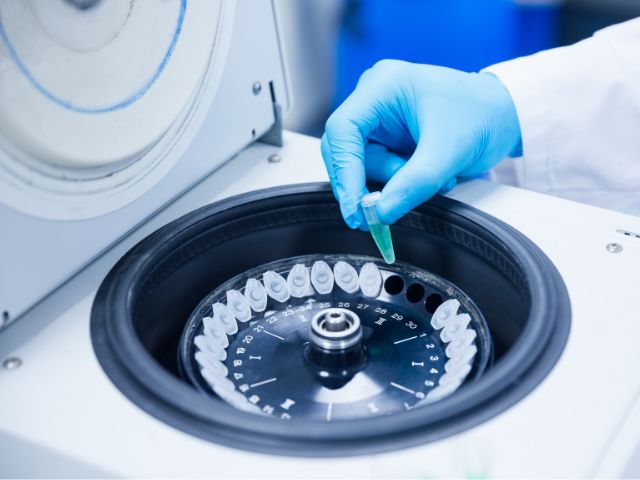

If you’re beginning a new lab, whether it’s for professional research, testing, or education, you’ll need a few things. Below, we identify some general equipment and machines that every science lab should have, from safety equipment to centrifuges.
Every lab needs basic things like glassware and safety equipment, regardless of what kind of research or testing occurs in the lab.
You’d be hard-pressed to find a scientific lab that doesn’t have substantial glassware. After all, without glassware, it’s hard to get any work done. Some examples of glassware that labs need include the following:
While getting these items may seem like a chore, labs can often buy glassware packages with all the basic items in one collection.
No lab should begin work in any way if it doesn’t have the proper safety equipment and materials to protect the lab and staff. There’s a reason every lab has scientists in lab coats with glasses and gloves—this equipment helps keep people safe while working with potentially hazardous substances.
Along with basic protective wear for staff, every lab should have the following safety equipment:
Everyone in the lab should also receive training on how to use these items in case of a contamination or fire emergency.
Along with safety supplies and glassware, there is some general equipment that every science lab should have. These pieces of equipment are sometimes referred to as the workhorses of the lab, as they experience frequent use.
A centrifuge is one of the most common sights in scientific labs. A centrifuge uses a rotor to separate liquid samples by spinning at a high speed.
The centrifuge uses centrifugal force to separate the substances based on their density. This relatively simple operation is incredibly useful in many research fields, which is why it’s so popular. When choosing a centrifuge for your lab, you should consider a few things, like RPMs and temperature control.
Another frequent sight in many labs is a cell culture incubator. Incubators maintain a consistent temperature and high humidity to help grow tissue culture cells under a CO2 atmosphere.
Any lab conducting research or analysis regarding cell and tissue cultures needs incubators to create a controlled and contaminant-free environment for the tissue samples. Incubators are in all sorts of testing labs, from pharmaceutical to food testing and quality control.
24World Media does not take any responsibility of the information you see on this page. The content this page contains is from independent third-party content provider. If you have any concerns regarding the content, please free to write us here: contact@24worldmedia.com

Common Mistakes When Using Athletic Field Tarps

High-Performance Diesel Truck Upgrades You Should Consider

Warehouse Optimization Tips To Improve Performance

Fire Hazards in Daily Life: The Most Common Ignition Sources

Yellowstone’s Wolves: A Debate Over Their Role in the Park’s Ecosystem

Earth Day 2024: A Look at 3 Places Adapting Quickly to Fight Climate Change

Millions of Girls in Africa Will Miss HPV Shots After Merck Production Problem

This Lava Tube in Saudi Arabia Has Been a Human Refuge for 7,000 Years

Four Wild Ways to Save the Koala (That Just Might Work)

National Academy Asks Court to Strip Sackler Name From Endowment

Ways Industrial Copper Helps Energy Production

The Ins and Out of Industrial Conveyor Belts